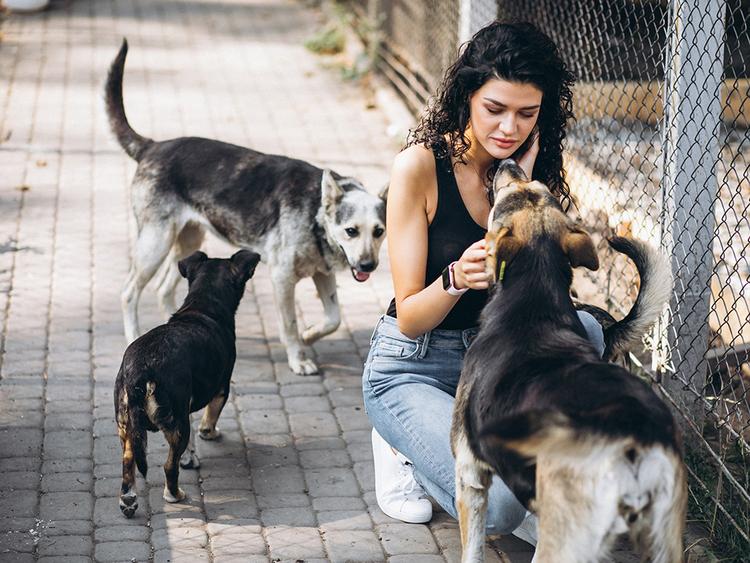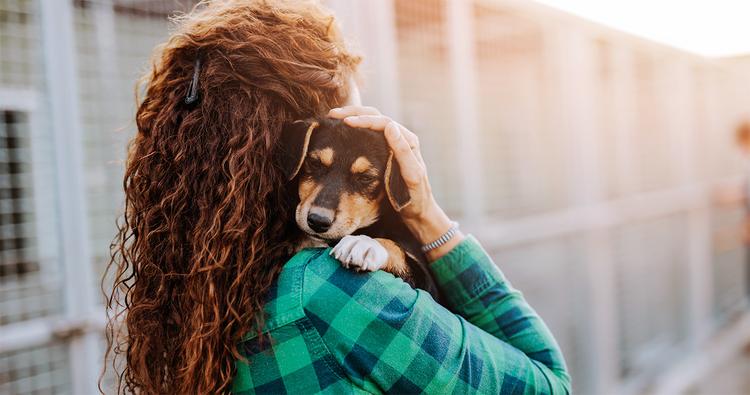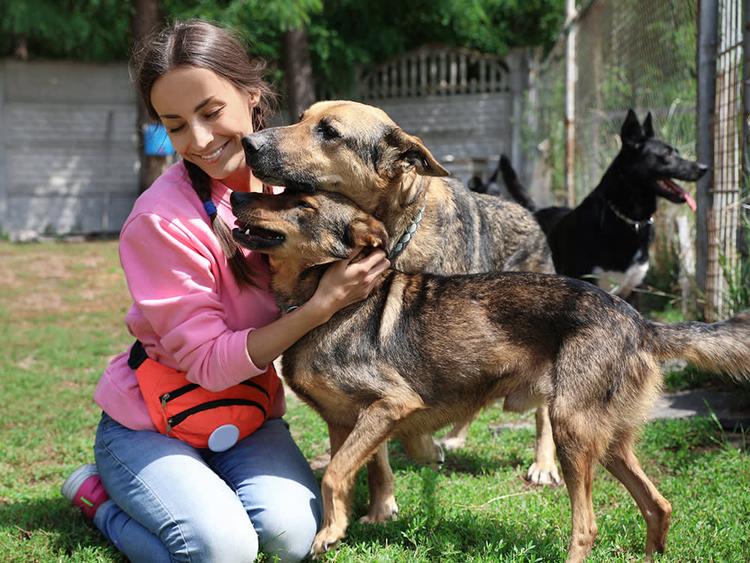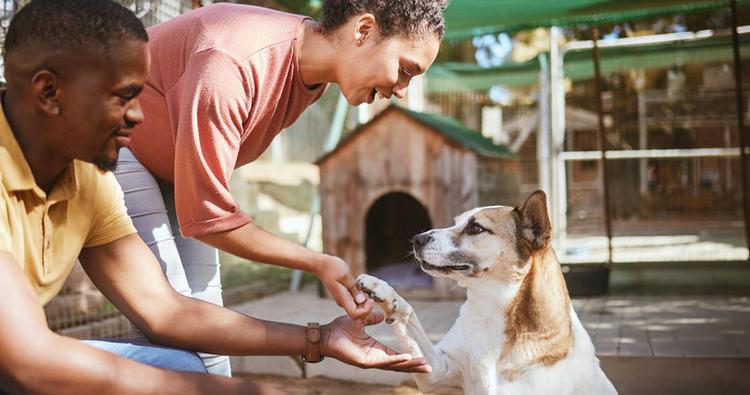by Dr. Dan Carey, | February 23, 2018

Ezequiel Giménez / Stocksy
When you adopt a dog, one moment changes everything: That moment when your new friend goes from lost to found. And while you are searching for them and they are waiting for you, your shelter is taking great care to make sure your new pet is as healthy and ready as possible for this new beginning.
In this article:
Beyond providing food and toys, the shelter gets to know your dog's temperament, daily habits and, most importantly, checks on their health and well-being. The staff knows that when it comes time for you to ask "Who's a good dog?" you don't want fleas, ticks, mosquitoes and heartworms to respond, too. All these things play a part in preparing your dog for your home.
Check-ups
Vaccinations and preventives
Temperament assessment
Preparing your dog for adoption
Each new arrival at a shelter is a new experience for the staff, veterinarians and dog. By following strict rules and guidelines, the staff moves into action.
Check-ups
Shelter professionals understand the need to identify, treat or help prevent fleas, ticks, mosquitoes, heartworms and intestinal worms. After all, many shelter animals bring some unwanted guests along at check-in, and it doesn't take much for a few tiny nuisances to spread into a large shelter-wide problem.
Vaccines and preventatives
You may adopt your dog on her very first day in the shelter, or it may take some time to find each other. Regardless of how long her shelter stay is, your dog has already begun to receive the care, treatment and prevention she needs to be healthy. The staff ensures she has effective treatment or prevention products to help reduce the risk of fleas, ticks, mosquitoes, heartworms and intestinal worms. Seniors may also get supplements to support healthy joints and if pain management is necessary.
Temperament
As your dog settles into the shelter and starts to share her unique personality and needs, the staff looks for opportunities to make her stay less stressful and increase her chances of adoption. Puppies present their own obvious age-specific requirements, and senior dogs are given special attention, too.
Bringing home your new dog
When the dog you've been searching for finally joins your family, it's the first step to a new life together.
Walks, playtime, treats and attention go a long way to building a strong bond.
Making good health a priority is another way to show your love. Long after he leaves the shelter, the risk of discomfort and disease due to fleas, ticks, mosquitoes and heartworms remains. These troublesome trespassers may be found year-round, both inside and outside, and without protection they can easily claim your new dog as their new home.
Establish an ongoing prevention and wellness routine as an essential part of doing your best for their health and happiness. Learn more about caring for your dog here.
Dr. Dan Carey
Dr. Dan Carver is a Bayer Veterinarian.
Related articles

Shelters & Rescue
How to Prepare for an Animal Shelter Visit

Breed Info
Are Mutts Healthier Than Purebreds?

Shelters & Rescue
Are Shelter Pets Healthy?

Adoption Advice
How to Find a Dog to Adopt
Learn more about how you can find a dog shelter that meets your expectations.


Rehome
Can You Keep a Stray Dog You Found?
Here are some steps to take before trying to adopt a stray dog.

Adoption Advice
The 3-3-3 Rule For Dogs: Adopted Dog Adjustment Period Explained
Find out how to set your adopted rescue dog up for success.

Adoption Advice
How to Choose a Vet for My Dog?
Pet parenthood can be tough, but finding the right vet doesn’t need to be. These tips will help you find the right vet for your pup.

Shelters & Rescue
Pet Shelter Myths: Facts About Adopting from a Shelter
Debunk a few animal shelter myths and learn the benefits of adopting from a shelter or rescue group.

Shelters & Rescue
How to Help Shelter Animals Without Adopting

Shelters & Rescue
Pet Adoption: How To Find A Pet Rescue?
Looking to adopt? Here are some helpful guidelines on finding a reputable pet rescue organization.

Adoption Advice